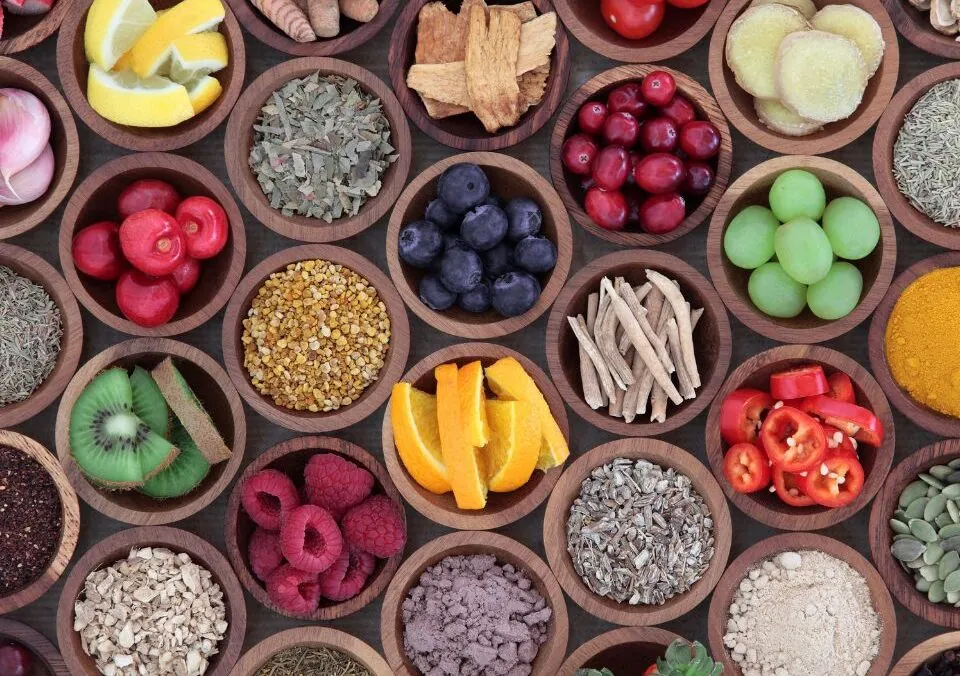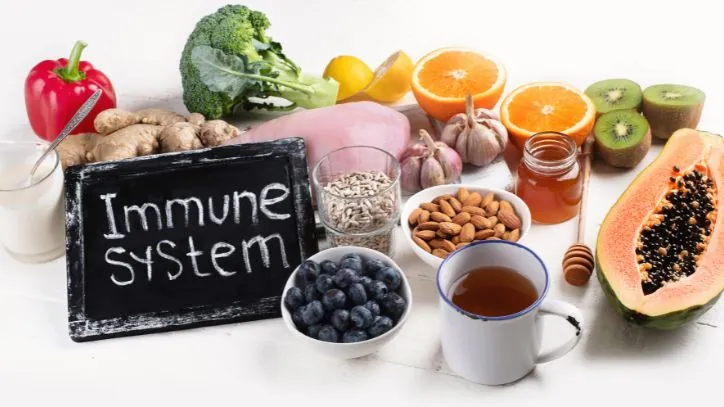Blog
There’s More to Boosting Immunity Than Vitamin C Packets

As the year starts winding down and the holiday season approaches, it brings with it not just festive cheer, but also the potential for colds and the flu. The irony of the “most wonderful time of the year” being also the most common time to fall ill is not lost on anyone. The desire to enjoy family gatherings, holiday parties, and all the delights this season offers can sometimes be overshadowed by an unexpected bout of illness. Therefore, now is the perfect time to focus on how to boost our immunity and ensure that we can fully enjoy everything the season has to offer.
The Misconception of Vitamin C
When people think of immunity boosting, the first thing that often comes to mind is vitamin C. Many rush to grab those bright packets promising a dose of vitamin C, hoping to stave off sickness. You know the ones – those fizzy drinks that attempt to taste like orange juice but end up being a poor imitation. While vitamin C does play a crucial role in immune function, it is misguided to think that it is a panacea for preventing illness.
Research shows that our immune systems are complex and rely on a myriad of nutrients working in harmony. According to the National Institutes of Health, some studies suggest that vitamin C can reduce the duration and severity of colds, but it is not as effective in preventing them outright. Instead, a robust immune response is the result of a well-balanced diet rich in various vitamins and minerals, not just a single nutrient.
The Role of a Balanced Diet
Registered dietitian-nutritionist Sarah Schlicter emphasizes that certain nutrients can activate immune systems and bolster bodily processes, making them more efficient. For example, vitamin C helps stimulate the formation of antibodies that are crucial for fighting illness, but it works more effectively when combined with other essential nutrients like vitamin A, vitamin D, zinc, and probiotics.

Let’s explore some of these key nutrients in detail:
Vitamin A: The Protector of Skin and Tissues
Vitamin A is an essential nutrient for maintaining the health of our skin and mucosal barriers, which are our body’s first line of defense against pathogens. Foods rich in vitamin A include carrots, sweet potatoes, spinach, and kale. According to a study published in the Journal of Nutrition, sufficient levels of vitamin A can help prevent infections by keeping these barriers intact and functioning efficiently.
Vitamin D: The Sunshine Vitamin
Vitamin D has gained a lot of attention recently, especially in light of its role in immune function. It is produced by the body in response to sunlight, which is why it’s often referred to as the “sunshine vitamin.” Research, including findings from the American Journal of Clinical Nutrition, indicates that vitamin D can modulate the immune response and decrease susceptibility to infections. Foods high in vitamin D include salmon, fortified milk, and egg yolks. For individuals who may not get enough sunlight—especially in the winter months—supplementing vitamin D could be beneficial.
Zinc: The Immune Booster
Zinc plays a vital role in the function of immune cells. According to the World Health Organization, a zinc deficiency can lead to weakened immune response. Foods high in zinc include meat, shellfish, lentils, chickpeas, seeds, nuts, dairy, and whole grains. Supplementing with zinc during the onset of a cold has been shown to shorten the duration of symptoms, making it an important mineral to consider during the cold and flu season.
Probiotics: The Unsung Heroes of Immunity
Probiotics are beneficial bacteria that support gut health. A significant portion of our immune system is located in the gut, making it crucial to maintain a healthy microbiome. According to a study published in Frontiers in Microbiology, the consumption of probiotics can enhance the immune response and may reduce the incidence and duration of respiratory infections. Foods rich in probiotics include yogurt, kefir, sauerkraut, kimchi, and other fermented foods.
Antioxidants and Their Role
Alongside vitamins and minerals, antioxidants play a significant role in boosting our immunity. Antioxidants help combat oxidative stress, which can weaken immune function. Fruits and vegetables are rich sources of antioxidants, particularly those that are brightly colored—from berries to leafy greens.
A comprehensive review in the journal Nutrients highlights how the consumption of fruits and vegetables rich in antioxidants can reduce the risk of chronic diseases and bolster our immune response. Incorporating a variety of color-rich foods can ensure you’re getting a diverse array of antioxidants.
Practical Tips for Building Immunity
Now that we’ve discussed some crucial nutrients for immune health, here are several tips to help incorporate them into your diet:
- Diversify Your Plate: Aim to consume a colorful assortment of fruits and vegetables each day. This not only provides a wide range of nutrients but also keeps meals interesting.
- Include Healthy Fats: Omega-3 fatty acids found in fatty fish, walnuts, and flaxseeds have anti-inflammatory properties that support immune health. The American Heart Association recommends including these fats in a balanced diet.
- Stay Hydrated: Proper hydration is vital for maintaining overall health, including the immune system. While water is essential, herbal teas and broths can also contribute to your hydration status.
- Prioritize Sleep: Adequate sleep is essential for a healthy immune response. According to research sleep deprivation can impair immune function, making you more susceptible to infections.
- Manage Stress: Chronic stress can weaken the immune system. Incorporating stress-reducing activities, such as yoga, meditation, or simple breathing exercises, can promote a healthier immune response.
- Exercise Regularly: Moderate physical activity can enhance immune function. Studies suggests that regular physical activity can help reduce inflammation and improve immune response.
Shopping for Local Produce
Incorporating a healthy, diverse, and balanced diet is not just about knowing what to eat; it’s also about where to get it. Arizona agriculture offers a bounty of fresh, local produce that can easily enhance your diet during the colder months. Many farmers’ markets and local grocery stores strive to source seasonal fruits and vegetables that provide optimal nutrition. By choosing local produce, you not only support local farmers but also enjoy foods that are at their peak ripeness and taste.
For those in Arizona, visiting local farmers’ markets can be a great way to discover what’s in season. Many markets offer seasonal selections from fresh greens and root vegetables to citrus fruits that are abundant during the winter months. Incorporating these fruits and vegetables into your diet can significantly contribute to your overall nutrition and immunity.
Conclusion
As we embrace the holiday season, taking proactive steps to boost our immune health can make all the difference in how we feel during this time. While vitamin C packets might still have a place in our wellness routines, it’s essential to remember that immunity is multifaceted and best supported through a holistic approach to nutrition.
Incorporating a variety of vitamins, minerals, antioxidants, and probiotics through a well-balanced diet not only helps fight off illness but also contributes to overall health and well-being. So as you prepare for the holidays, remember that the key to a strong immune system lies in what’s on your plate.
By adopting these dietary habits and considering the enriching benefits of local produce, you can prepare your body to face the season ahead, ensuring that you remain healthy, happy, and sniffle-free during this festive time!
For more health and food articles, check out the Fill Your Plate website!
By Heide Kennedy, Arizona Farm Bureau Communications Intern


















